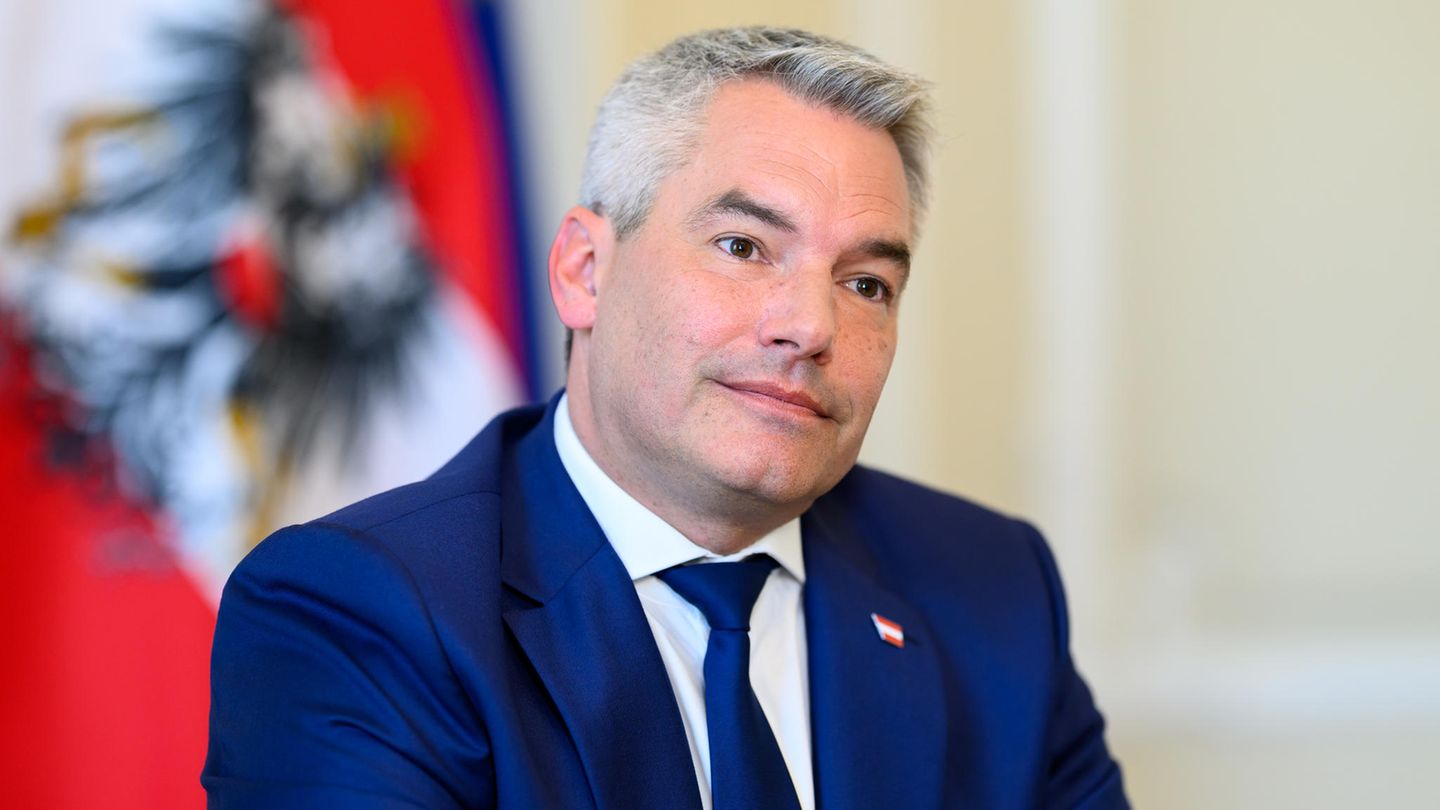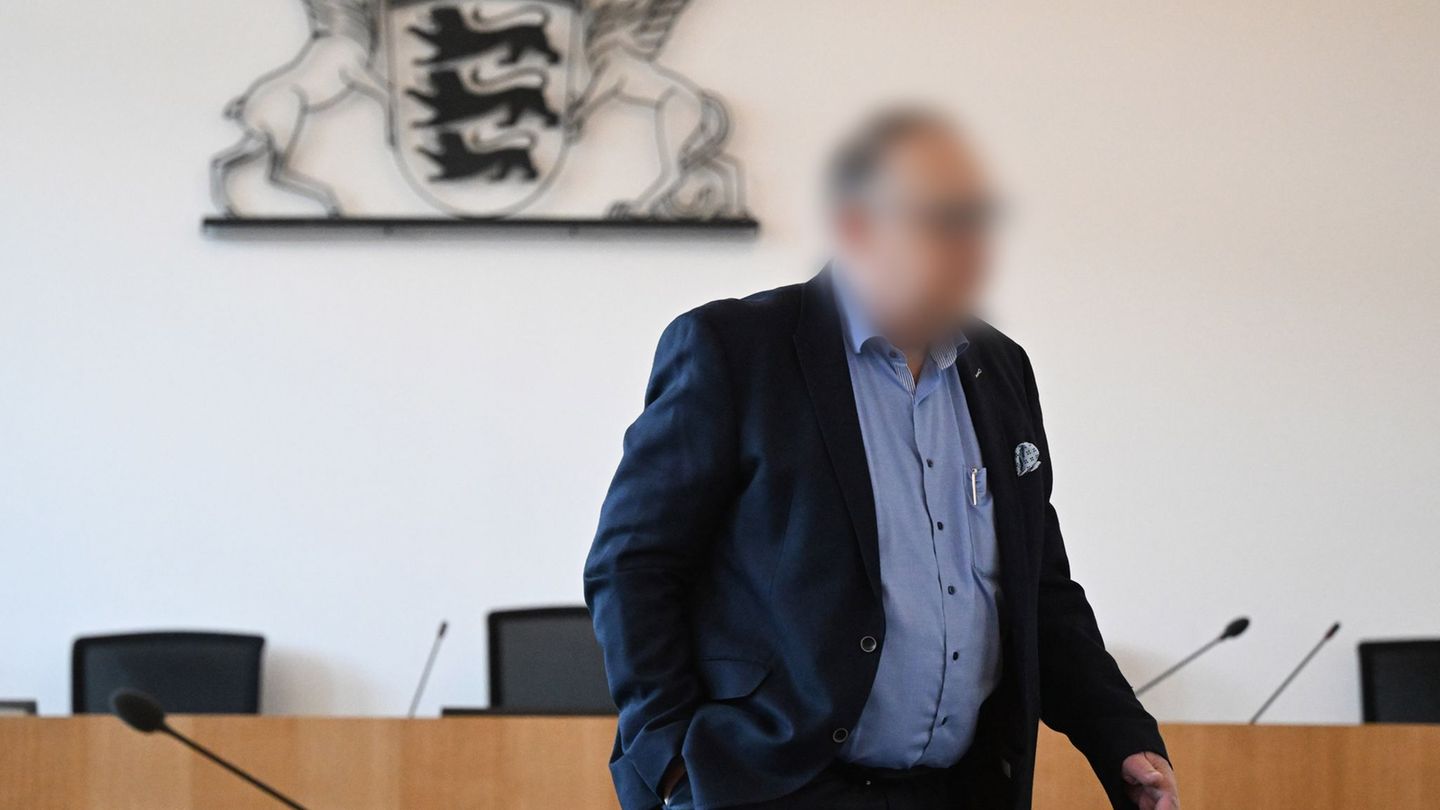Germany wants to reject migrants at the borders more quickly. They would then have to return to Austria, for example. But Chancellor Nehammer is already protesting there.
According to Chancellor Karl Nehammer, if more refugees are turned away at the German borders, Austria could be forced to take similar measures. However, according to EU law, it is fundamentally not possible to simply reject asylum seekers without an appropriate procedure, the conservative head of government stressed in an election campaign debate on the ORF broadcaster.
He rejects a breach of EU law, said Nehammer. At most, Germany could invoke an emergency clause in EU regulations and in this way increase the pressure at its borders. If Germany creates a situation of uncertainty through such an “idiosyncratic interpretation of the law, we will stand up against it and clearly protect our borders,” said the Chancellor. “We will then also invoke the emergency clause and then reject it as well,” he said.
Most recently, Federal Minister of the Interior Nancy Faeser (SPD) proposed a model to bring asylum seekers who have already been registered in other EU countries more quickly to the European states responsible for them. The proposal was to be discussed at a meeting between the Federal Government and the Union, but the talks fell through. The Christian Democrats believe the proposal does not go far enough. CDU politician Thorsten Frei criticized the fact that the plans were not aimed at additional rejections, but at accelerated procedures in Germany.
Federal police to play a greater role in deportations
However, the government is still planning reforms. According to the changes planned by the traffic light coalition, the Federal Office for Migration and Refugees (Bamf) is to operate the so-called Dublin procedure more quickly in the future. This determines which European country is responsible for an asylum procedure. In many cases, this is the state in whose territory the asylum seeker first set foot on European soil.
Meanwhile, the federal police are to check whether there are any free prison places and, if necessary, apply to the relevant court for detention so that those affected do not go into hiding. “The state judiciary needs to act quickly here. There must also be a sufficient number of prison places in the states, preferably near the border along the migration routes,” it said. “Alternatively, a fixed allocation and residence requirement should be provided if detention is not an option,” government sources said.
The federal government wants to seek dialogue so that the countries that are supposed to take back migrants cooperate. This is where things are currently often stuck. Administrative courts should decide quickly on any complaints filed by those affected against their transfer.
A real innovation is the planned larger role for the Federal Police. Up to now, deportations have been the responsibility of the federal states, and the Federal Police only supports the implementation. In future, the Federal Police will then bring the people out of Germany at the end of the planned accelerated procedure.
“In addition, Germany continues to rely on close cooperative cooperation with its neighbouring countries, for example through joint patrols and joint police centres at the borders. An immediate rejection at the borders beyond current practice would massively endanger this cooperation,” it continued.
Attack in Solingen sparked migration debate in Germany
The day before the meeting, Faeser had already ordered temporary controls at all German land borders in order to further reduce the number of illegal entries. The additional controls are to begin on September 16 and will initially last for six months. In addition to limiting irregular migration, the ministry also cited the protection of internal security against current threats from Islamist terrorism and cross-border crime as reasons for the controls now ordered.
The debate about irregular migration and deportations has also intensified due to several violent acts. In Solingen, three people were killed and eight others injured in a suspected Islamist knife attack at a town festival in August. A 26-year-old Syrian is in custody for the crime.
Rejections currently only occur in certain cases: if someone is banned from entering the country or does not apply for asylum. Rejections at Germany’s internal borders are generally only possible where there are controls directly at the border.
According to the Federal Ministry of the Interior, more than 30,000 people have been turned back since October. In mid-October 2023, Faeser ordered stationary controls at the borders with Poland, the Czech Republic and Switzerland. Such controls, which are justified by irregular migration, have been in place at the German-Austrian land border since September 2015. The newly ordered controls directly at the border affect the land borders with France, Denmark, Belgium, the Netherlands and Luxembourg.
Source: Stern
I have been working in the news industry for over 6 years, first as a reporter and now as an editor. I have covered politics extensively, and my work has appeared in major newspapers and online news outlets around the world. In addition to my writing, I also contribute regularly to 24 Hours World.




